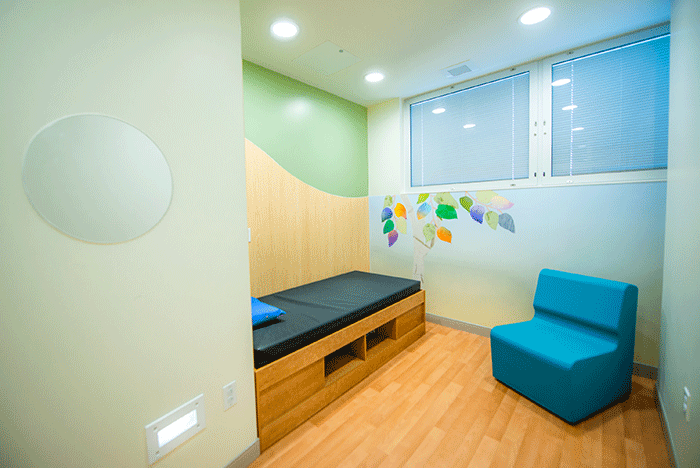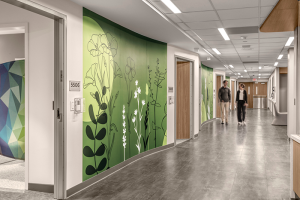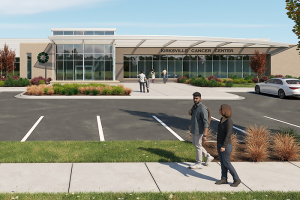Facilities that anticipate future challenges
The health care field has experienced unprecedented change and upheaval over the past few years. Increasingly, resiliency is referenced as a way for systems to adjust to changes and disturbances, but what does that really mean? Health care facilities must be designed in such a way as to respond to challenges related to everything from disease outbreaks to climate change to artificial intelligence. These changing times have ignited interest in concepts of flexibility, adaptability and “future-proofing,” in both health care operations and design. The Center for Health Design’s Knowledge Repository includes several papers on these topics, including three covered here.
While the concept of future-proofing has received a renewed focus in recent years, there is a wide range of opinions on what it is and what it entails. Memari and colleagues attempt to better understand and explain this concept in a recent study exploring how future-proofing is perceived and implemented. They interviewed 16 health care architects in Australia and translated findings into a model for future-proofing practice. The model is unique in how it goes beyond the traditional thinking of a building in a passive role during risk management (such as resilience against disruptions) and moves toward more proactive concepts of the building in mitigating adverse events and improving patient outcomes.
With the intent of providing design recommendations for the management and prevention of future outbreaks, a literature review by Alansari and Quan focuses on key findings from studies focused on emergency department design strategies in response to the COVID-19 pandemic. Findings from 56 publications in the review resulted in a set of 41 design strategies within different categories including physical separation, virtual care, ventilation, environment surface cleanliness and hand hygiene. The review emphasizes the importance of a systems approach, in that all design strategies must be considered in conjunction with operational measures to ensure the best health care outcomes.
A study by Brooks and colleagues looks back at how the 2019 heat wave in England impacted health care and explores lessons learned. Researchers interviewed National Health Service health care professionals about their experiences and identified key themes around health and well-being of patients and staff, health care provision, barriers to service delivery and considerations around planning for future heat waves and other weather events. The open-access paper includes several design implications related to medical equipment, information technology and HVAC, as well as general recommendations for health system resilience related to heat wave preparedness.
While the pandemic has perhaps been the loudest canary in the coal mine of the health care design industry, there is a constantly growing list of unknowns to consider when designing for the future. Health care design professionals can benefit from research on these topics as they continue to search for the best methods in the art of expecting — and designing for — the unexpected. If you are interested in more on resilience and future-proofing design, you can find articles on this and other health care design topics in The Center for Health Design’s Knowledge Repository.
Research used for this column
The following research citations from The Center for Health Design’s Knowledge Repository of health care design resources were used by the author when writing this column:
- S. Memari, et al., “Future Proofing for Hospital Building Design: From Research to Practice,” Architectural Engineering and Design Management, 2023, in press.
- A. Alansari and X. Quan, “Designing High-Performance Emergency Care Facilities against COVID-19,” The International Journal of Design in Society, vol. 16, no. 2 (2022): 91–113.
- K. Brooks, et al., “Heatwaves, Hospitals and Health System Resilience in England: A Qualitative Assessment of Frontline Perspectives from the Hot Summer of 2019,” BMJ Open, vol. 13, no. 3 (2023).
About this column
“Design Discoveries” highlights research from The Center for Health Design’s Knowledge Repository, a user-friendly library of health care design resources. This research effort is supported by the American Society for Health Care Engineering, the American Institute of Architects, the Academy of Architecture for Health Foundation and the Facility Guidelines Institute.
Melissa Piatkowski, research associate, The Center for Health Design.





